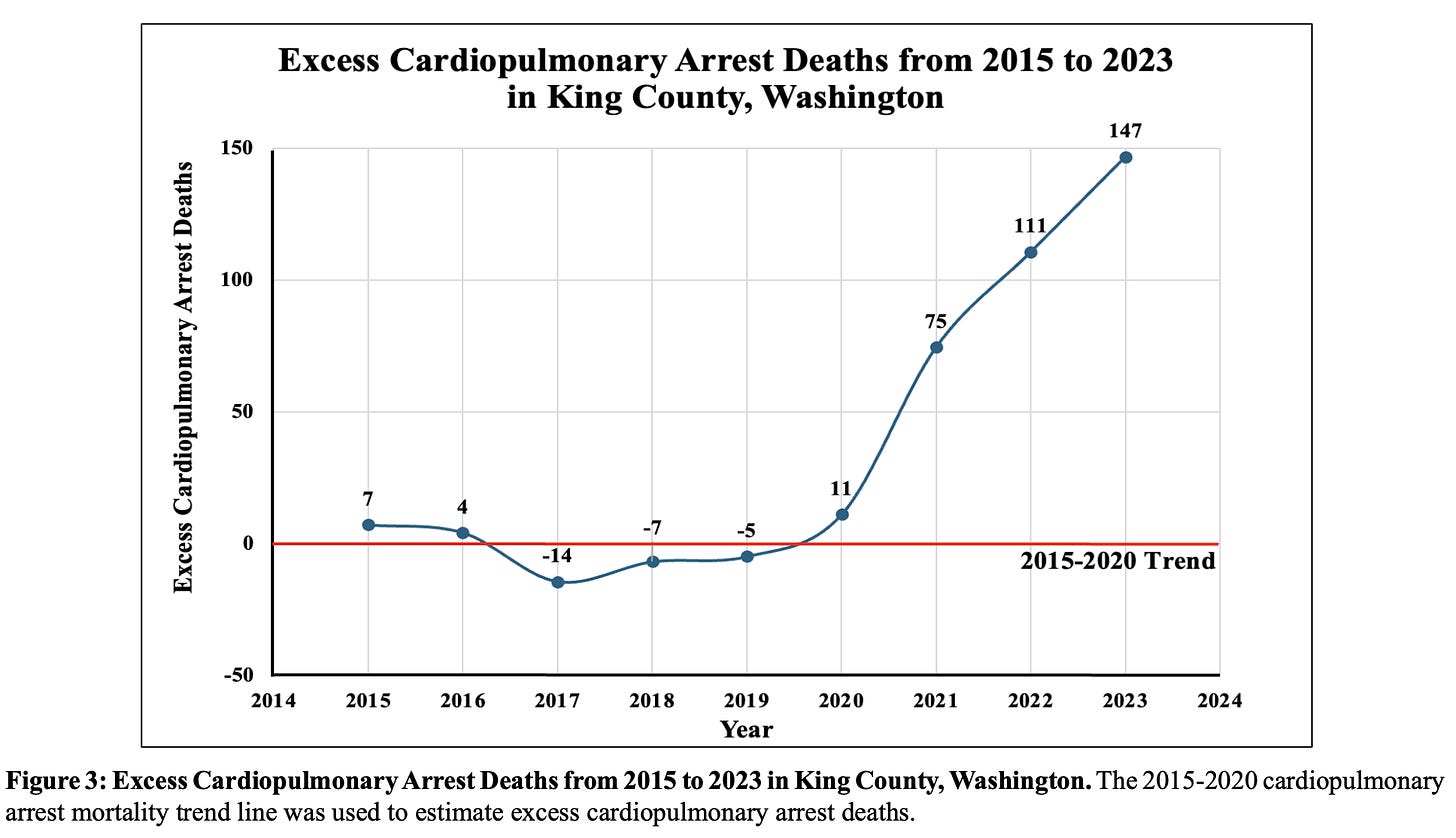 By Independent News Roundup
By Independent News Roundup
Nicolas Hulscher, MPHJul 18, 2025 EST. By Nicolas Hulscher, MPH
A new JAMA Cardiology study by McBride et al confirms what emergency physicians in King County, WA, have long hoped: survival after out-of-hospital cardiac arrest (OHCA) has steadily improved for two decades. From 2001 to 2020, survival to hospital discharge rose from 14.7% to 18.9%, with even greater gains for shockable rhythms—from 35% to 47.5%. This reflected massive regional investments in CPR training, AED access, EMS optimization, and post-arrest care.

In our 2024 study, Excess Cardiopulmonary Arrest and Mortality After COVID-19 Vaccination in King County, Washington, we found that cardiac arrest survival declined and plateaued at 18% during 2021–2023, the exact period when COVID-19 mRNA vaccinations were deployed at scale across King County.

At the same time, the number of cardiac arrests surged, and excess fatal events skyrocketed by 1,236% compared to the pre-vaccine trend line.

This suggests that decades of progress in cardiac arrest survival were effectively reversed and halted by the mass mRNA vaccination campaign, which introduced a new, population-scale cardiotoxic exposure.
The JAMA study introduces an important metric called “survivor incidence”—the number of people who survive a cardiac arrest per 100,000 residents each year. Thanks to two decades of improvements in emergency response, this number rose from 12.3 survivors (2001–2005) to 15.2 (2016–2020).
That’s a net gain of just 2.9 additional survivors per 100,000 people per year—the result of 20 years of hard-earned progress.
But in our study, we found that in 2022 alone, there were 111 excess cardiac arrest deaths in King County—not a projection, but based on actual reported data. That translates to approximately 4.9 excess deaths per 100,000 people in a single year.

That means the excess number of lives lost to cardiac arrest in just one year during the peak of the COVID-19 mRNA injection campaign was nearly double the number of lives we spent two decades working to save.
In summary:
Public health officials, cardiology societies, and emergency medicine leaders have failed to do their jobs and ignored this disaster for far too long. It’s time to remove the cardiotoxic mRNA injections from the market.
Epidemiologist and Foundation Administrator, McCullough Foundation
www.mcculloughfnd.org
